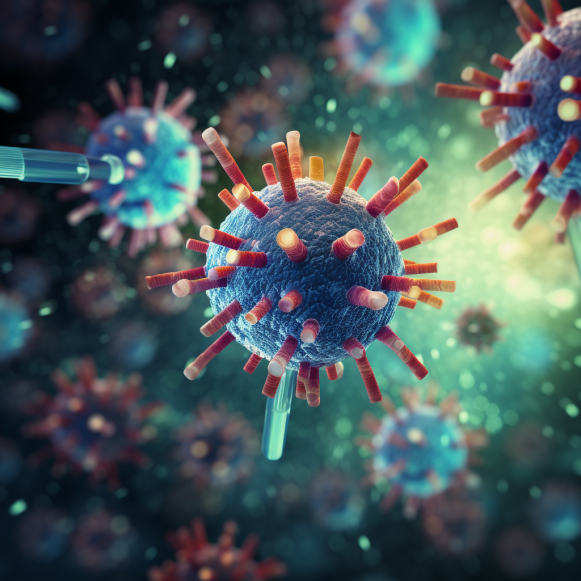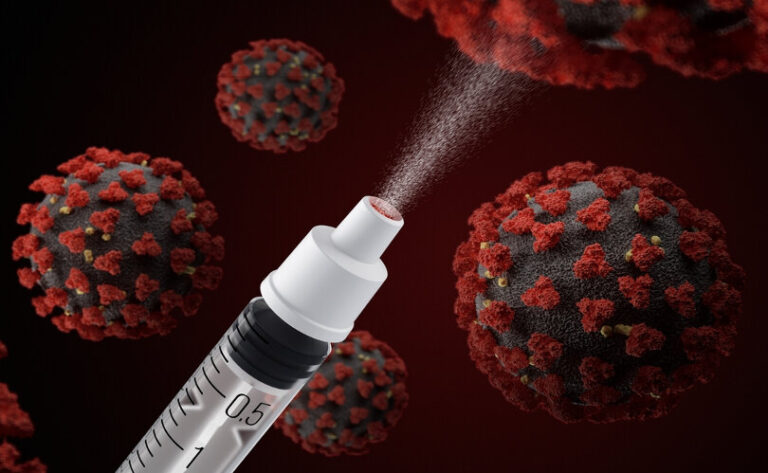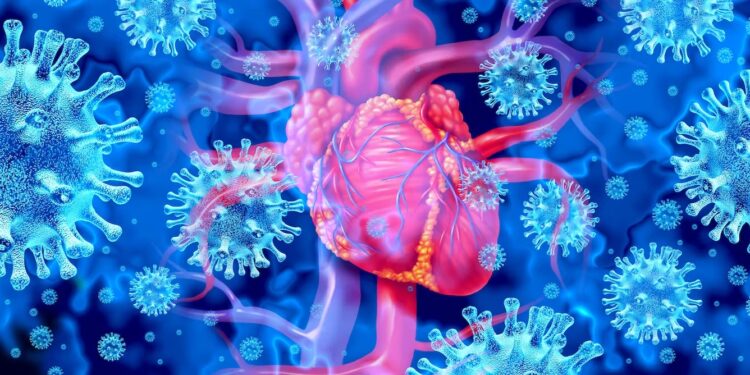COVID-19 mRNA Vaccines Reduce a Major Beneficial Bacteria, Gut Biodiversity: Research

Some unpublished data found that Bifidobacteria levels are negligible in vaccinated people.
COVID-19 mRNA vaccines have been shown in studies to reduce bacteria from the Bifidobacteria genus, a common and beneficial gut bacteria. COVID vaccination has also been linked to a decrease in gut biodiversity.
Dr. Sabine Hazan, CEO of ProgenaBiome, a microbiome genomic research laboratory, discovered that after COVID-19 vaccination, people’s Bifidobacteria levels can drop by up to 90%. According to some of her unpublished data, Bifidobacteria levels in vaccinated people are negligible.
As a baby passes through the mother’s birth canal, bifidobacteria are among the first microbes to colonize his or her gastrointestinal tract. They are thought to be beneficial to their host’s health.
Bifidobacteria interact with the immune system, and their presence has been linked to increased resistance to pathogens and cancer.
Dr. Hazan’s previous research on hospitalized COVID-19 patients revealed that patients with severe COVID-19 had no or low Bifidobacteria levels, whereas those with higher Bifidobacteria stores tended to develop asymptomatic infection.
During her research, she came across a pair of siblings who were participating in the COVID-19 vaccine clinical trials.
“One sibling received a placebo, while the other received the vaccine.” The one sibling who received the vaccine was harmed… and she lacked Bifidobacteria bacteria. “Her brother, who received the placebo and was unharmed, has Bifidobacteria,” she told The Epoch Times.
Bifidobacteria’s Importance
By comparing microbiome diversity before and after vaccination, researchers discovered the loss of Bifidobacteria. In most cases, the loss is temporary, but it can last for up to nine months in extreme cases.
In rare cases, the Bifidobacteria population in patients increases. A patient’s Bifidobacteria population more than doubled a month after vaccination, according to Dr. Hazan. However, six to nine months after vaccination, the patient’s Bifidobacteria count had dropped to zero.
According to Dr. Hazan, it is unknown why some people’s Bifidobacteria levels increase after vaccination.
Bifidobacteria are a common probiotic, and it is well known that they can be consumed by humans to improve gut health. In fact, Bifidobacteria-containing products account for billions of dollars in probiotic market share.
Diabetes, cancer, and autoimmune diseases have all been linked to a lack of Bifidobacteria microbes. According to some studies, taking probiotic Bifidobacteria can help improve diabetic symptoms and fight cancer.
Other Microbe Loss Following Vaccination
According to Dr. Hazan, some patients may have other microbiomes that have vanished after vaccination, and determining what microbiomes the patient may have had prior to vaccination requires difficult forensic work.
One study conducted by Hong Kong researchers discovered that mRNA COVID-19 vaccine administration was directly linked to decreased gut biodiversity, resulting in the loss of at least ten different microbes.
While certain bacteria increased in some vaccinated people, vaccination reduced overall microbiome diversity.
The authors also mentioned that the bacteria in the gut may be linked to the risks of common adverse reactions such as fever, headaches, pain at injection sites, and so on. Patients with high Bifidobacteria levels, for example, were less likely to develop vaccine adverse reactions.
A low biodiversity gut microbiome is linked to poor health and aging. Babies develop a diverse gut microbiome after birth. They lose this diversity as they age because they develop diseases, take antibiotics and drugs, eat unhealthy foods, sleep less, and so on.
During infancy, Bifidobacteria can make up up to 95% of the baby’s gut microbiome. This then decreases and stabilizes at less than 10% in adulthood.
Dr. Hazan, on the other hand, has seen cases of babies breastfed by vaccinated mothers who had no Bifidobacteria. The long-term consequences are unknown, especially since Bifidobacteria play a role in immune system development.
According to internal physician Dr. Yusuf Saleeby, growing awareness of the importance of the gut microbiome in health has led some parents to freeze their baby’s first stool for future fecal transplant. The fecal sample may be transplanted to correct the gut microbiome composition as the baby grows and his or her microbiome depletes.
“If the child gets sick and there’s dysbiosis, the parents can go back to the company … and reinoculate those microbes back into the baby, to try to bring back what the baby should have had,” he said.





